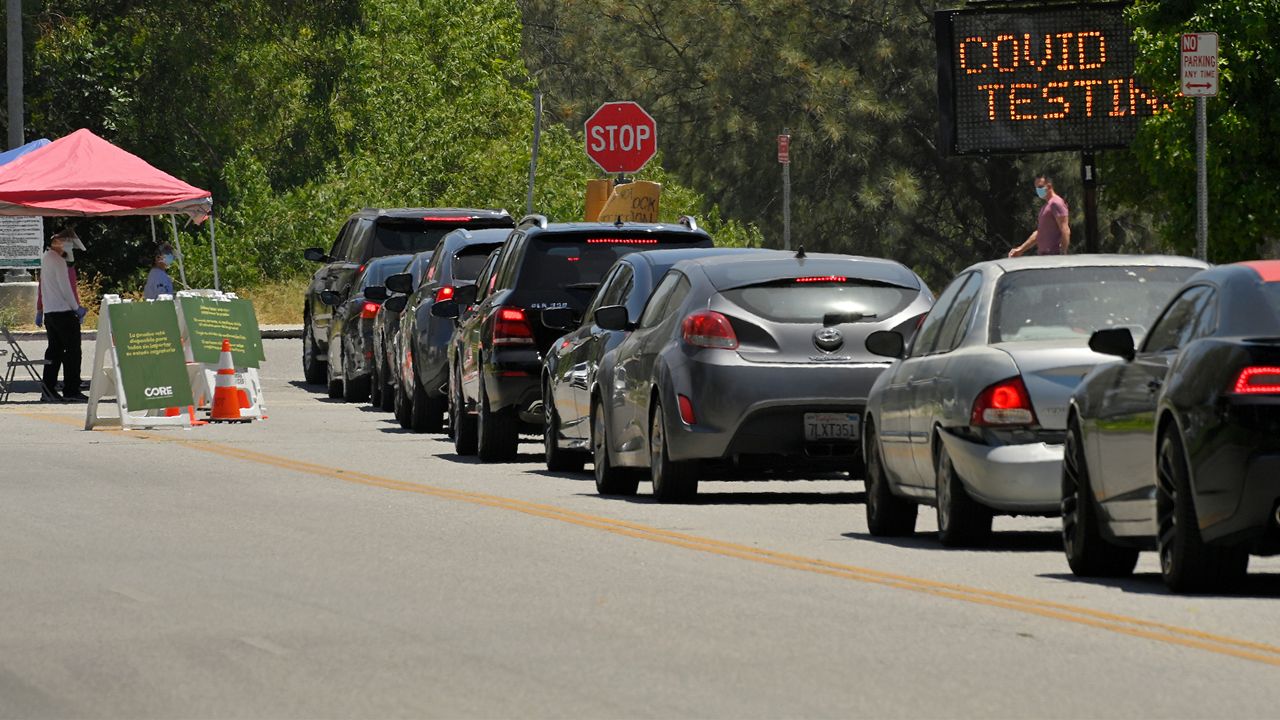LOS ANGELES (CNS) - Los Angeles County's public health director has again warned that case numbers, positivity rates and hospitalizations are continuing to rise to levels not seen since the onset of the coronavirus pandemic.
Whether the worsening numbers will prompt a return to tougher Safer At Home orders and business closures remained undetermined, with Barbara Ferrer insisting Thursday that while she does not want to see such restrictions imposed again, nothing is ruled out.
"Nothing can be off the table in the pandemic," she said. "There's too much unknown and there's lots of things that could happen that could put us in much worse shape, including, you know, some serious mutations of this virus that make it more dangerous. So I would never be the person that's going to say, `absolutely, out of the question, we can never go back to Safer At Home.'
"There's just too much unknown here. There's a virus, there's a pandemic. A lot of what happens here also depends on what's happening in other places around the country, so we shouldn't really take any tools off the table," she said. "What I would like to say is, I hope we never have to go back to Safer At Home. I hope we do our job well ... all of us do our job well and we get back to what we know we can do, which is slow that curve."
Mayor Eric Garcetti warned Wednesday that if current infection trends don't reverse, the area could again find itself facing stricter orders to remain at home.
Ferrer announced another 50 deaths due to the coronavirus Thursday, although one of those deaths was actually reported Wednesday by the city of Long Beach. That city reported one additional death Thursday afternoon, as did Pasadena, which also has its own health department.
The new deaths increased the county's overall death toll from the virus to 3,691.
Ferrer also reported another 1,777 coronavirus cases, while Long Beach added 254 more and Pasadena confirmed 14. Those new cases lifted the county's total confirmed cases since the start of the pandemic to 125,006.
The average daily percentage of people testing positive for the virus in the county over the past seven days stood at 9.2 percent as of Thursday, while the overall positivity rate from throughout the pandemic remained at about 9 percent. The seven-day positivity average remains above the 8.4 percent rate reported about a week ago, but it has slightly dipped in recent days, with the rate topping 11 percent earlier this week.
Most concerning in the figures was the number of people hospitalized due to the virus. As of Thursday, 2,037 people were hospitalized -- one of the highest, if not the highest, levels of the pandemic. In June, the average number of people hospitalized was averaging about 1,400.
"Our cases are rising, the rate of infection is increasing and the number of hospitalizations are up," Ferrer said. "These numbers are reminiscent of what we saw months ago at what we thought was going to be the height of the pandemic here in L.A. County."
The same pattern is being witnessed in several areas of the nation.
Ferrer reiterated concerns expressed Wednesday that the increasing numbers of cases and hospitalizations could lead to spiking numbers of deaths in the coming weeks. She noted Wednesday that while 93 percent of people who have died from the virus had underlying health conditions, the 7 percent of people who died and had no existing health issues should serve as a warning.
"When the numbers get as big as they are today, that 7 percent represents dozens and dozens of people who may have thought that they were at no risk for having serious illness and even dying from COVID-19, but unfortunately this virus can affect many, many different people."
On Thursday, she again warned that younger residents continue to drive the increasing numbers of infections, and those people can easily pass the infection to people more vulnerable to serious complications or death.
"Younger people infect everybody else," she said. "... They don't just get to choose, I'm only going to infect a low-risk person that I know is going to be able to tolerate COVID-19. That's not how it works. As a young person, you inadvertently unknowingly could be infecting people even in your age cohort who then go on and infect somebody else who's at risk and actually may even die."



